Sustainability – a building block for successful transformation in tourism
Climate change and sustainability are a high priority in business and tourism worldwide, including in Austria. Sustainable change is urgently needed and at the same time offers the opportunity for a successful transformation of the tourism industry. The will and willingness to operate in a resource-conserving manner and to benefit from efficiency improvements are essential. Corporate responsibility means acting now in order to remain attractive and competitive for customers, employees and stakeholders.
The future belongs to those who focus on environmental protection and sustainability. Some reasons for this are:
- More conscious travelers who demand sustainable offers
- Companies favour sustainable hotel partners
- Employees are looking for meaningful jobs
- Stricter sustainability regulations and growing political pressure
- Funding agencies and banks demand sustainability reports
- Avoid loss of value of commercial real estate
- Better image and greater competitiveness
- Growing investor interest in ecological data
- Cost savings and efficiency gains through resource-conserving management
In order to achieve the climate targets for our future and that of our descendants, everyone must take action. Sustainable management in the hotel and tourism industry is indispensable today and in the future. Hence my recommendations:
- Implement ESG principles (environmental, social, governance) in your business
- Reduce ecological footprint, strengthen social commitment and optimize corporate governance
- Achieve strong and contemporary market positioning to secure competitiveness
Sustainability – a building block for successful transformation in tourism
Climate change and sustainability are a high priority in business and tourism worldwide, including in Austria. Sustainable change is urgently needed and at the same time offers the opportunity for a successful transformation of the tourism industry. The will and willingness to operate in a resource-conserving manner and to benefit from efficiency improvements are essential. Corporate responsibility means acting now in order to remain attractive and competitive for customers, employees and stakeholders.
The future belongs to those who focus on environmental protection and sustainability. Some of the reasons for this are:
- More conscious travelers who demand sustainable offers
- Companies favour sustainable hotel partners
- Employees are looking for meaningful jobs
- Stricter sustainability regulations and growing political pressure
- Funding agencies and banks demand sustainability reports
- Avoid loss of value of commercial real estate
- Better image and greater competitiveness
- Growing investor interest in ecological data
- Cost savings and efficiency gains through resource-conserving management
In order to achieve the climate targets for our future and that of our descendants, everyone must take action. Sustainable management in the hotel and tourism industry is indispensable today and in the future. Hence my recommendations:
- Implement ESG principles in your business
- Reduce ecological footprint, strengthen social commitment and optimize corporate governance
- Achieve strong and contemporary market positioning to secure competitiveness
Tourism businesses investing in sustainability are better prepared to meet future challenges and increase their profitability at the same time!
ESG consulting for the hotel and tourism industry
I support and advise companies in the hotel and tourism industry on their path to greater sustainability, climate protection and resource conservation. Depending on the level of integration of sustainability in the company, I develop tailor-made offers. This ranges from creating awareness and building up know-how to integrating ESG (Environment, Social, Governance) into the corporate culture.
Depending on the available resources and requirements of the company, I support companies in various areas on a selective, temporary, project-related or long-term basis.
This includes recording the ESG status quo in the company, introducing the topic of sustainability, updates on the legal framework, as-is analyses including the recording of key figures and materiality analyses, strategic planning and development of an ESG concept as well as support in the implementation of ESG measures including the integration of the SDGs. I also offer support with stakeholder management and employee training, prepare and write ESG reports, assist in obtaining certifications such as the Austrian Ecolabel or the EU Eco-Label and support internal and external ESG communication. I also help to integrate ESG into the corporate culture and apply for funding.
ESG consulting for the hotel and tourism industry
I support and advise companies in the hotel and tourism industry on their path to greater sustainability, climate protection and resource conservation. Depending on the level of integration of sustainability in the company, I develop tailor-made offers. This ranges from creating awareness and building up know-how to integrating ESG (Environment, Social, Governance) into the corporate culture.
Depending on the available resources and requirements of the company, I support companies in various areas on a selective, temporary, project-related or long-term basis.
This includes recording the ESG status quo in the company, introducing the topic of sustainability, updates on the legal framework, as-is analyses including the recording of key figures and materiality analyses, strategic planning and development of an ESG concept as well as support in the implementation of ESG measures including the integration of the SDGs. I also offer support with stakeholder management and employee training, prepare and write ESG reports, assist in obtaining certifications such as the Austrian Ecolabel or the EU Eco-Label and support internal and external ESG communication. I also help to integrate ESG into the corporate culture and apply for funding.
ESG stands for Environmental, Social and Governance.
Environment (“E”) – ecological sustainability, our nature and environment. (relates to SDGs (Sustainable Development Goals) 11,12,13,14,15)
Social (“S”) – social responsibility, people and their rights. (relates to SDGs 3,4,8,10,13)
Governance (“G”) – i.e. the economy and corporate governance (relates to SDGs: 8,10,11,12,13)
Environment (“E”)
Environmental sustainability. Focus: Reduction of environmental pollution, conservation of resources. “Planet”
Social (“S”)
Social responsibility. Focus: human rights, employee satisfaction, corporate culture. “People”
Governance (“G”)
Corporate governance and economics. Focus: transparency, ethical practices, compliance, risk management. “Profit”
What is ESG consulting and what does “ESG” stand for?
ESG stands for Environmental, Social and Governance.
Environment (“E”) – ecological sustainability, our nature and environment. (relates to SDGs 11,12,13,14,15)
Social (“S”) – social responsibility, people and their rights. (relates to SDGs 3,4,8,10,13)
Governance (“G”) – i.e. the economy and corporate governance (relates to SDGs: 8,10,11,12,13)
Environment (“E”)
Environmental sustainability. Focus: Reduction of environmental pollution, use of resources and climate protection, “Planet”
Social (“S”)
Social responsibility. Focus: human rights, employee satisfaction, corporate culture. “People”
Governance (“G”)
Corporate governance and economics. Focus: transparency, ethical practices, compliance, risk management.
Sustainability is a process that, once integrated into the company, is constantly evolving, but it never ends!
Start the ESG change process now
As an expert in tourism management and sustainable business, I support hotels, restaurants and other tourism providers in their sustainable transformation. The quickest way to do this is my ESG Quick Check, which shows the current ESG status, a risk assessment and further options for action. For businesses that want to delve deeper into sustainability, I recommend the comprehensive ESG consultation – ESG Complete.

ESG-CHECK BASIC
1 day consultation in the company

ESG COMPLETE
Comprehensive ESG consulting
Start the ESG change process now
As an expert in tourism management and sustainable business, I support hotels, restaurants and other tourism providers in their sustainable transformation. The quickest way to do this is my ESG Quick Check, which shows the current ESG status, a risk assessment and further options for action. For businesses that want to delve deeper into sustainability, I recommend the comprehensive ESG consultation – ESG Complete.

ESG-CHECK BASIC
1 day consultation in the company

ESG COMPLETE
Comprehensive ESG consulting
Businesses that have been awarded the Austrian Ecolabel are committed to preserving the basis of life, look after the well-being of their guests and save on operating costs at the same time. Based on a comprehensive list of criteria, a business is assessed in the following areas: General management, environmental management, energy, water, waste, air, noise, office, cleaning, chemicals, hygiene, building and living, equipment, food, kitchen, transportation and outdoor areas.
The EU Ecolabel is a cross-border environmental label that serves as a uniform label for environmentally friendly products and services in the common European market. It was launched by the European Commission in 1992
Advantages of certification by the Austrian Ecolabel/EU EcoLabel
- State-recognized award
- Quality guarantee for your guests
- Market positioning and image
- Strengthening the image as an employer
- Cost savings through environmentally conscious management
- Protection of the environment, climate, resources and biodiversity
I am happy to support you in the certification process for the Austrian Ecolabel or EU EcoLabel.
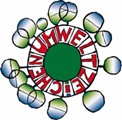

Use opportunities to save energy and, in particular, optimize consumption of the most important energy sources such as electricity, gas and water and reduce the ecological footprint. In contrast to other aspects, some of these aspects such as e-mobility, regional F&B offerings and various measures to conserve resources (water, waste, energy) are also directly perceptible to guests.
Relevant ESG regulations and initiatives
- Green Deal - with the goal of climate neutrality by 2050 with measures to promote a sustainable economy and protect biodiversity.
- EU Taxonomy Regulation - defines environmentally sound economic activities
- Corporate Sustainability Reporting Directive (CSRD) - requires companies to disclose detailed information about their sustainability practices - mandatory sustainability reporting for larger companies from 2025
- Sustainable Development Goals (SDGs - of the United Nations): 17 goals for sustainable development
- Global Reporting Initiative(GRI) - Standards for sustainability reporting
- Task Force on Climate-related Financial Disclosures(TCFD) - Recommendations on climate-related reporting
17 global goals of the United Nations (UN) to promote sustainable development
In 2015, the global community under the United Nations adopted the 2030 Agenda with 17 Sustainable Development Goals (SDGs) for sustainable development. The aim is to enable a decent life worldwide and preserve natural resources.

Hotels and tourism play a key role in achieving these goals, as they have an immense impact on the economic, social and environmental dimensions of sustainability.
- Ecology - conserving resources, reducing emissions, protecting biodiversity and combating climate change through sustainable tourism practices.
- Social - promotion of fair working conditions, respect for human rights and protection of cultural heritage.
- Economy - Local value creation through job creation, income generation and economic development of communities and regions.
All 17 SDGs are relevant for tourism, but the most important SDGs in my opinion are the following: SDGs 3, 4, 8, 10, 11, 12, 13, 14, 15, 17
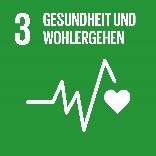
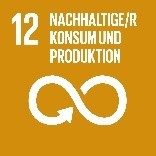
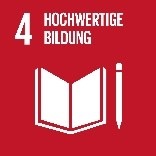
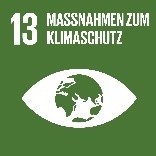
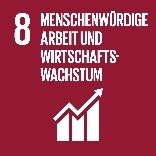
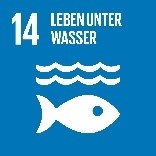
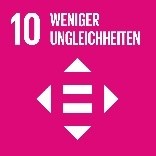
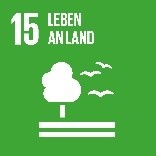
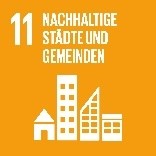
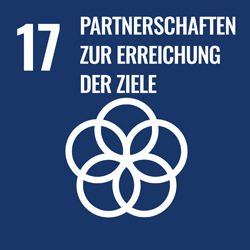










The contribution that tourism can make to achieving this in detail is presented very clearly here by the BMfAuW - more info
“Sustainable tourism is not just a trend, but a necessity. It ensures long-term success and protects the natural and cultural resources that make tourism attractive.” (Taleb Rifai, former Secretary-General of the UNWTO)
Advantages of my advice
- Comprehensive expertise in the field of ESG consulting
- Industry knowledge and expertise in the hotel and tourism sector
- Individual and customized advice
- Hands-on support for the implementation of measures
- Improvement of public image and reputation
- Increased attractiveness for investors and banks
- Securing sustainable business success and company value
Shaping a sustainable future now
When I accompanied the first hotels in obtaining the Austrian Ecolabel (UZ 200) many years ago, sustainability was not yet a key issue for politicians, the media and guests. Today, sustainability and ESG criteria are omnipresent. Sustainable business practices are crucial to stopping climate change and keeping our planet livable.
The upcoming EU regulations as part of the Green Deal will also oblige small and medium-sized enterprises (SMEs) to operate sustainably. Take the opportunity to make your business more sustainable now and benefit from information, potential savings and possible subsidies for a successful future for your company.
When is the right time to start talking about sustainability? If you believe the reports and information from the media and various organizations, then it is 5 to 12 regarding the climate crisis and its impact on the earth and its people.
Let's work together to create a better and more sustainable world for us all!

